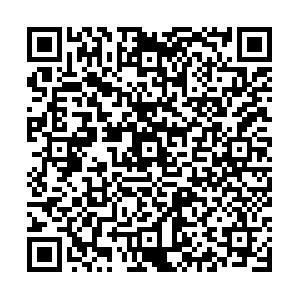| [1] |
Department of Education and Children's Services. School Discipline[EB/OL].[2020-12-15]. http://intra.aphs.sa.edu.au/web/sites/default/files/SchoolDiscipline Policy.pdf.
|
| [2] |
中华人民共和国教育部.中小学教育惩戒规则(试行)(中华人民共和国教育部令第49号)[Z]. 2020-12-23.
|
| [3] |
The Centre for Independent Studies. Discipline Always the Key to Excellence at School[EB/OL].[2020-10-04]. https://www.cis.org.au/Commentary/articles/discipline-always-the-key-to-excellence-at-school/.
|
| [4] |
Emmeline Taylor, Alison Kearney. School Discipline and Surveillance:Developments in Australia and Aotearoa/New Zealand[A]. Jo Deakin, Jo Deakin, Emmeline Taylor, Aaron Kupchik. The Palgrave International Handbook of School Discipline, Surveillance, and Social Control[C]. Cham:Palgrave Macmillan, 2018:87-98.
|
| [5] |
Sally Varnham, Joan Squelch. Legal Approaches to Social Control in Australian Schools:Old Ideas and New Trend[A]. Jo Deakin, Emmeline Taylor, Aaron Kupchik. The Palgrave International Handbook of School Discipline, Surveillance, and Social Control[C]. Cham:Palgrave Macmillan, 2018:108.
|
| [6] |
Queensland Government. Safe, Supportive and Disciplined School environment[EB/OL].[2020-12-10]. http://ppr.det.qld.gov.au/education/learning/Pages/Safe-Supportive-and-Disciplined-School-Environment.aspx.
|
| [7] |
NSW Government. Education Standards Authority[EB/OL].[2020-12-14]. https://rego.nesa.nsw.edu.au/starting-a-new-school/initial-registration/requirements/discipline.
|
| [8] |
Department of Education. Safe, supportive and disciplined school environment[EB/OL].[2020-10-10]. http://ppr.det.qld.gov.au/education/learning/Pages/Safe,-Supportive-and-Disciplined-School-Environment. aspx.
|
| [9] |
NSW Department of Education and Training. Code of Conduct:Fairness, Respect, Integrity and Responsibility[EB/OL].[2020-12-15]. https://www.cdu.edu.au/sites/default/files/school-education/docs/nsw-dept-education-code-of-conduct.pdf.
|
| [10] |
Ministry of Education and Human Resources. Tertiary Education and ScientificResearch. Student Behaviour Policy[EB/OL].[2020-12-14]. http://ministry-education.govmu.org/English/educationsector/sec-education/Pages/Secondary.aspx.
|
| [11] |
Lisa Cameron, Margaret Thorsborne. Restorative Justice and School Discipline:Mutually Exclusive?[A]. Heather Strang, John Braithwaite. Restorative justice and civil society[C]. Cambridge, UK:Cambridge University Press, 2001:182-189.
|
| [12] |
NSW Department of Education. Wellbeing for schools Student behaviour and discipline[EB/OL].[2020-12-15]. https://www.det.nsw.edu.au/wellbeing/succeed/student-behaviour-and-discipline.
|
| [13] |
Ministry of Education. Behaviour Services and Support[EB/OL].[2020-10-25]. http://www.education.govt.nz/school/student-support/special-education/behaviour-services-to-help-schools-and-students/behaviour-services-and-support/.
|
| [14] |
Varnham. Keeping them connected:Restorative Justice in Schools in Australia and New Zealand-what progress?[J]. Australia&New Zealand Journal of Law&Education, 2008:77.
|
| [15] |
尹雅丽,马早明.严守戒尺的"界"与"度":澳大利亚新南威尔士州教育惩戒政策探索[J].外国教育研究, 2020(07):58-73.
|
| [16] |
Ramon Lewis. Classroom Discipline in-Australia[A]. Evertson, M. C.&Weinstein, C. S. Handbook of Classroom Management[M]. New Jersey:Lawrence Erlbaum Associates, 2006:1197.
|
| [17] |
Roache, J., Lewis, R. Teachers'Views on the Impact of Classroom Management on Student Responsibility[J]. Australian Journal of Education, 2010(02):132-135.
|
| [18] |
The centre for independent studies. Overcoming the Odds:A study of Australia's Top-performing Disadvantaged School[EB/OL].[2020-12- 25]. https://www.cis.org.au/app/uploads/2019/03/rr39.pdf.
|
| [19] |
尹雅丽,马早明.澳大利亚教育惩戒政策的演化、特征与启示[J].比较教育学报, 2020(02):36-49.
|

 点击查看大图
点击查看大图



 下载:
下载: